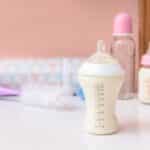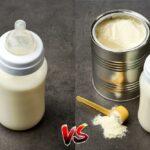Are you struggling to get your baby to drink formula? Perhaps you are trying to transition from breastfeeding to formula feeding or you are switching brands of formula and your baby is refusing to drink their formula milk.
This can be a really tough situation to be in as a parent, your baby hates the taste or formula but you really want them to be bottle-fed now.
Many parents have been in this situation and you will be pleased to read there are a few different things you can try to get your baby to happily drink formula milk.
Sometimes it may seem easiest to jump straight to finding out how to make baby formula taste better, we will of course cover this in this article, the first step though is to discover exactly why your baby won’t drink formula.
Why Won’t My Baby Drink Formula Milk?
Your baby is crying, they’re hungry again. You prepare them a bottle of formula and instead of drinking it they turn away from the bottle, take a sip and spit it out or drink way less than normal and scream until you give in and offer them the breast instead. Sound familiar?
It is common for babies to struggle with the transition from breastfeeding to bottle-feeding and before you assume it is because the formula milk tastes bad, here are some of the reasons why your baby won’t drink formula:
It’s not the same as nursing
Yes, it really is that simple. Your baby may be tiny but they can have already developed their own preferences when it comes to feeding.
If your baby has been breastfed since birth and you are now trying to give them formula, they may simply be refusing the bottle because it is not what they are used to.
Whilst both bottle and breastfeeding provide your child with food, nursing is a completely different experience for your baby and they may refuse the formula as it is not a bottle that they want, it’s you.
They don’t like the bottle nipple
It is not unheard of for parents to buy every bottle in the store before finding one that their baby will accept.
It can be difficult to find a bottle nipple that replicates the breast and your baby may just dislike the way the plastic nipple sits in their mouth or how the milk comes out when they suck.
Your baby’s refusal of a bottle of formula might have nothing to do with the taste at all.
The formula gives them an upset stomach
Your baby might be fussy when you offer them a bottle of formula as they may be suffering from colic.
Formula milk is more difficult for your baby’s digestive system to break down and can sometimes cause your baby to have an upset stomach; your baby be constipated, gassy or spit up a lot after drinking formula milk.
If your baby is getting a bad tummy during feeds they may refuse to drink all of their formula and get upset.
View in gallery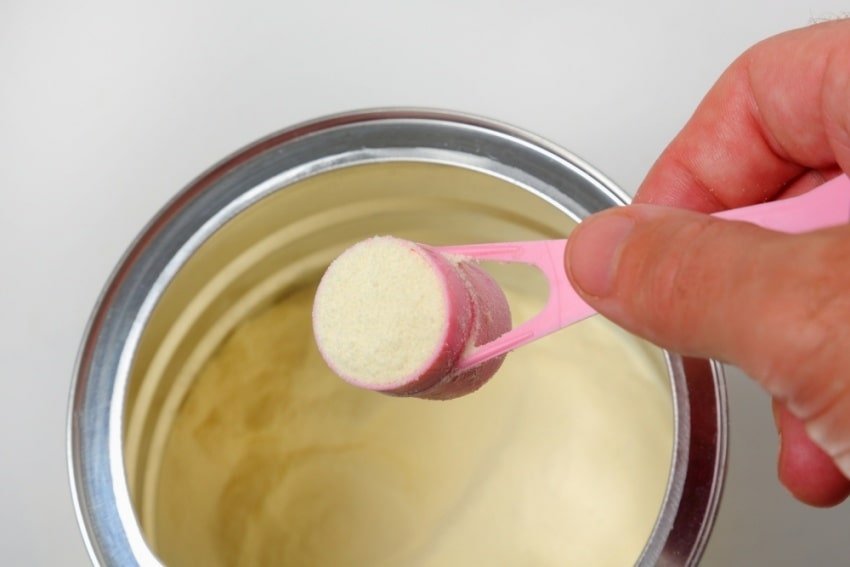
The formula is too hot or too cold
Whereas breastmilk is the perfect temperature for your baby, it can be more difficult to heat a bottle of formula to the correct temperature.
If your baby’s bottle is too cold they may refuse to drink it and if it is too hot they may burn their mouth, get upset, and become apprehensive whenever the bottle is offered to them.
The formula tastes bad
Yes, sometimes your baby won’t drink the formula simply because they don’t like the taste. Breast milk and formula milk taste completely different.
The composition and taste of breastmilk can vary from feed to feed but it is often described as being quite sweet. In comparison, formula milk can taste metallic and can have an unpleasant smell for babies.
Do you think your baby hates the tastes of formula milk? You might be right!
What To Do If My Baby Doesn’t Like Formula?
Once you have discovered why your baby is refusing to drink formula, you can come up with a plan of how to rectify the problem.
As we said earlier, some parents do have a really tough time transitioning from breastfeeding to bottle-feeding and if you feel like you have tried everything then you can speak to a pediatrician or feeding specialist for some expert advice.
Here is a list of a few different things you can try to encourage your baby to drink formula:
Switch brands
If your baby doesn’t like one brand of formula, you can always try another. You should always speak with a professional before swapping your baby’s formula but sometimes all it takes is offering your baby a different brand of formula for them to start bottle feeding happily.
Some formula milk has been specifically developed to taste more like breastmilk and others have been made to reduce the risk of colic and gas, making bottle-feeding more comfortable for your baby.
View in gallery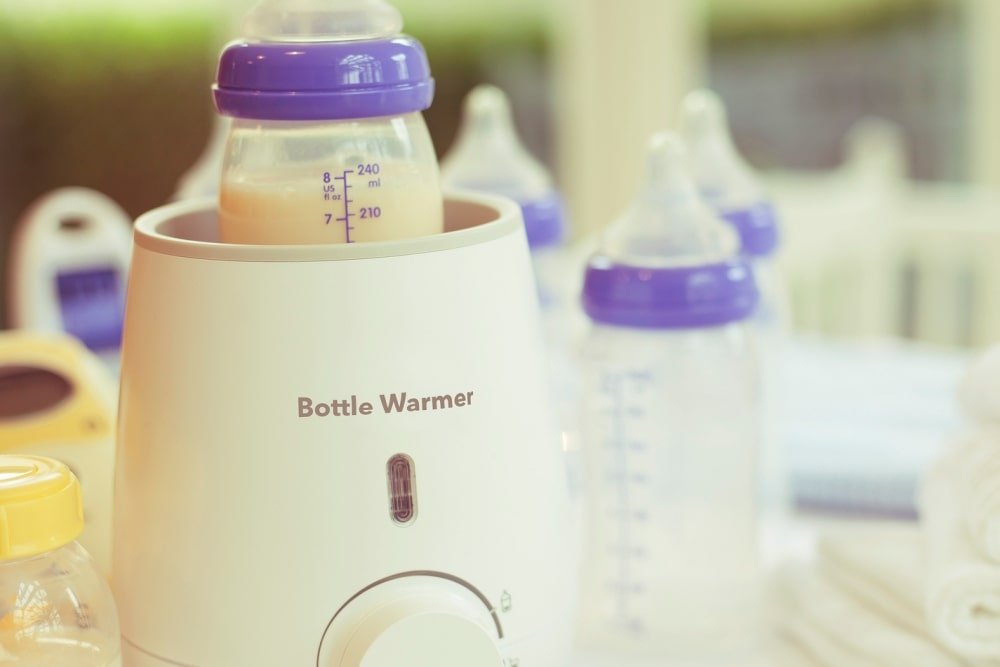
Heat the bottle correctly
If your baby has only ever had body temperature breastmilk, it’s unlikely they are going to love cold refrigerated formula milk. Equally, your baby is not going to enjoy drinking formula that is too hot and may burn their mouth.
To avoid dangerous hot spots and an uneven temperature to your baby’s feed, heat their bottle by standing it in a jug of warm water, rotating it under a running hot tap, or using a bottle warmer.
You have more chance of your baby accepting a bottle of formula for the first time if it is correctly heated.
Ask someone else to feed them
If your baby is used to nursing, there is a very real possibility that they are refusing the bottle when you offer it because they can smell your breastmilk. Your baby loves you no matter what but they do 100% associate you with breastmilk.
Babies can smell their mom’s breastmilk even when they are not feeding and they are likely to turn their nose up at a bottle of formula when they know the real deal is right there too.
Ask your partner or someone else to try feeding your baby a bottle of formula while you leave the room. Your chances of your baby accepting the bottle increase when the scent of your breastmilk can’t be detected by your baby.
Slow down and take your time
Swapping from breastmilk to formula is a big deal for your baby. Your milk is all they have ever known and it is going to take some time for them to get used to the new taste and texture of formula milk.
If you know you are heading back to work, start the weaning process in enough time to allow for some trial and error. You can’t expect your baby to just love formula milk straight away but with patience and compassion, you will get there.
Seek professional advice
View in gallery
If you need your child to start accepting bottles quickly but your baby doesn’t like formula, you may benefit from seeking professional advice.
Speak to your pediatrician or an infant feeding specialist, they will be able to help you determine exactly why your baby hates formula and will help you to develop a plan moving forward to encourage your baby to successfully bottlefeed.
How To Make Baby Formula Taste Better?
If after reading this article you are still convinced your baby hates the taste of formula milk, there are a few methods you can try to make baby formula taste better.
As babies can not talk, we do not know what the best tasting formula milk is.
Whilst some brands claim their product tastes like breastmilk and one mom swears by one brand and another says the brand she uses is the best, all babies are different and they don’t all love the same formula milk.
Here is a list of ways parents have tried to make formula taste better for their babies.
It is important to note that formula is always safest when prepared by carefully following the manufacturer’s guidelines and you should always seek advice from a professional when considering altering your baby’s formula milk.
Use the 50/50 method
The 50/50 (or half and half) method is when you mix your baby’s feeding using half the scoops from one formula powder and the other half from a different formula powder.
For example, if you usually use 6 scoops of Cow & Gate but you’re trying to switch your baby to Enfamil, use 3 scoops of one and threes scoops from the other and mix with the correct amount of water.
This method is thought to help your baby get used to the taste of the new formula whilst still having the familiar taste of the brand they are used to.
There are many reasons why you may want to switch from one brand of formula to another but it is important that you speak to a professional before using this method.
View in gallery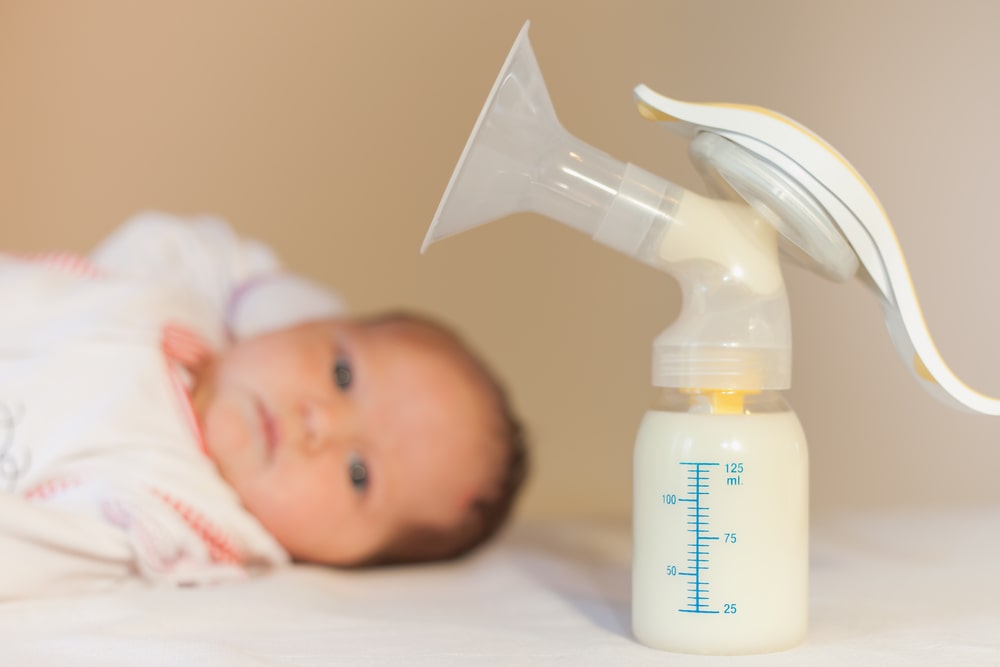
Add in some breastmilk
If your baby has been breastfed since birth, the taste of breastmilk is all they have ever known and they may be reluctant to accept the taste of formula milk. Some parents try adding a bit of their expressed breastmilk to a bottle of formula milk.
This method allows babies to still get some of the familiar taste of breastmilk whilst getting used to the taste of formula and to drinking from a bottle.
This method is generally not advised as breastmilk and formula should be consumed separately, so again it is important that you seek advice from a pediatrician before trying this approach.
Use liquid formula instead of powder
Liquid formula has a more consistent and smooth texture than powder formula, making it a closer alternative to breastmilk. Sometimes powdered formula can taste a bit chalky, the powder may not always mix in completely and this can impact its taste.
Also, when mixing the water and powder, gas bubbles can form and this can result in your baby having an upset stomach. You don’t need to shake or mix liquid formula, it is the right consistency every time and shouldn’t contain gas bubbles.
It is really important that you do not add foods like honey or sugar or juices to your baby’s bottle of formula.
The consumption of honey can be fatal to babies under 12 months of age and introducing sugar to your baby from a young age can increase their risk of childhood obesity and other serious illnesses and diseases.
Your baby does not need sugar in their formula milk or any other food mixed with is as sweeter or additive.
Whatever formula you are using has been specifically created to meet your child’s nutritional and dietary requirements, it can be dangerous trying to improve the taste of formula by adding in ingredients you think will make it sweeter and more palatable for your baby.
View in gallery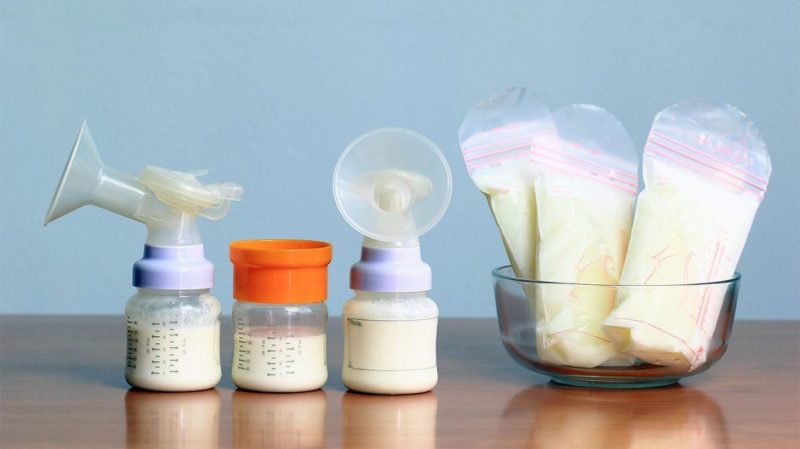
The Final Thought
When it comes to helping your baby who hates formula to start bottle feeding successfully, you need to take your time and be safe in whatever approach you choose to take.
It can be frustrating, especially if you are heading back to work soon or just want to wean for personal reasons, but if you are calm and persevere your baby will learn to accept the formula.
Hopefully, after reading all the advice in this article, your baby will be guzzling away on the bottle in no time.
Finally, remember, when it comes to your baby’s nutrition and diet, it is always best to speak to a trained professional who can offer you the best and safest solutions for helping your baby to start drinking formula.

